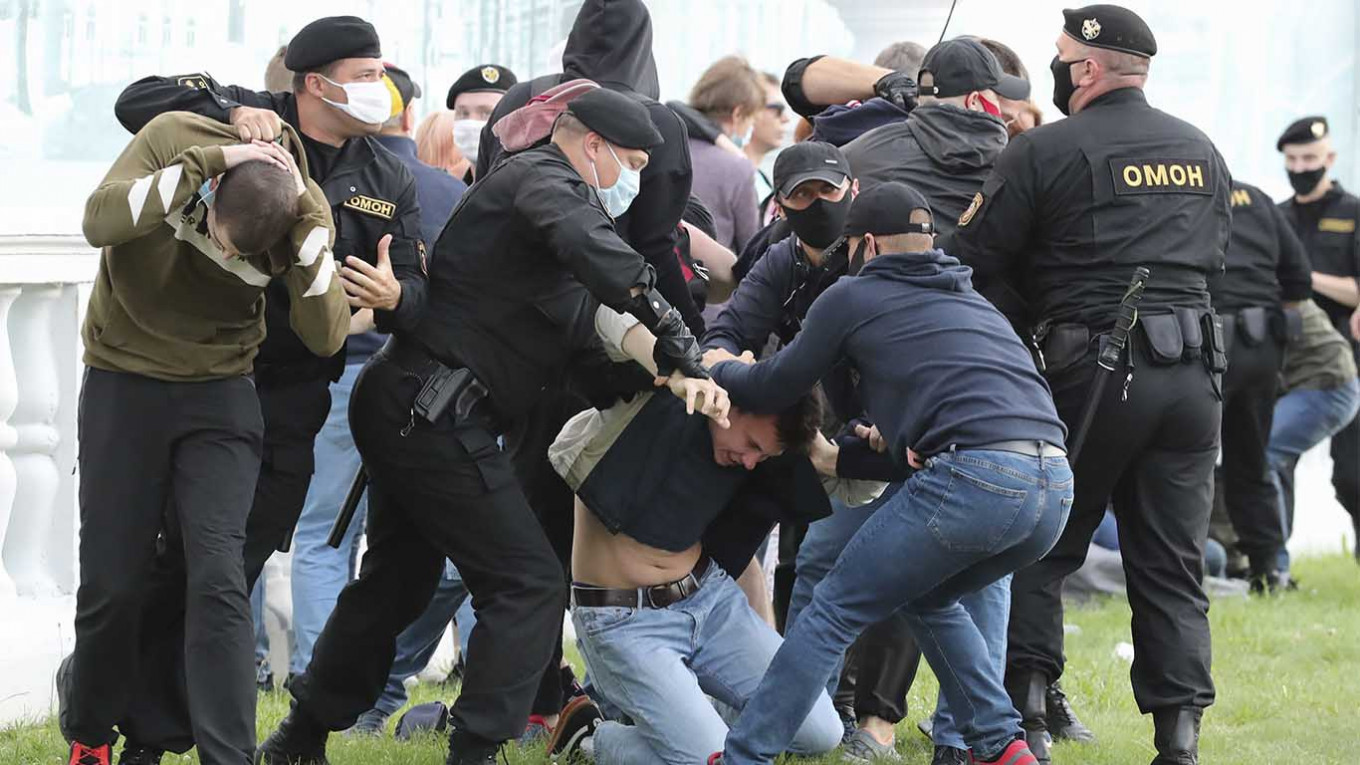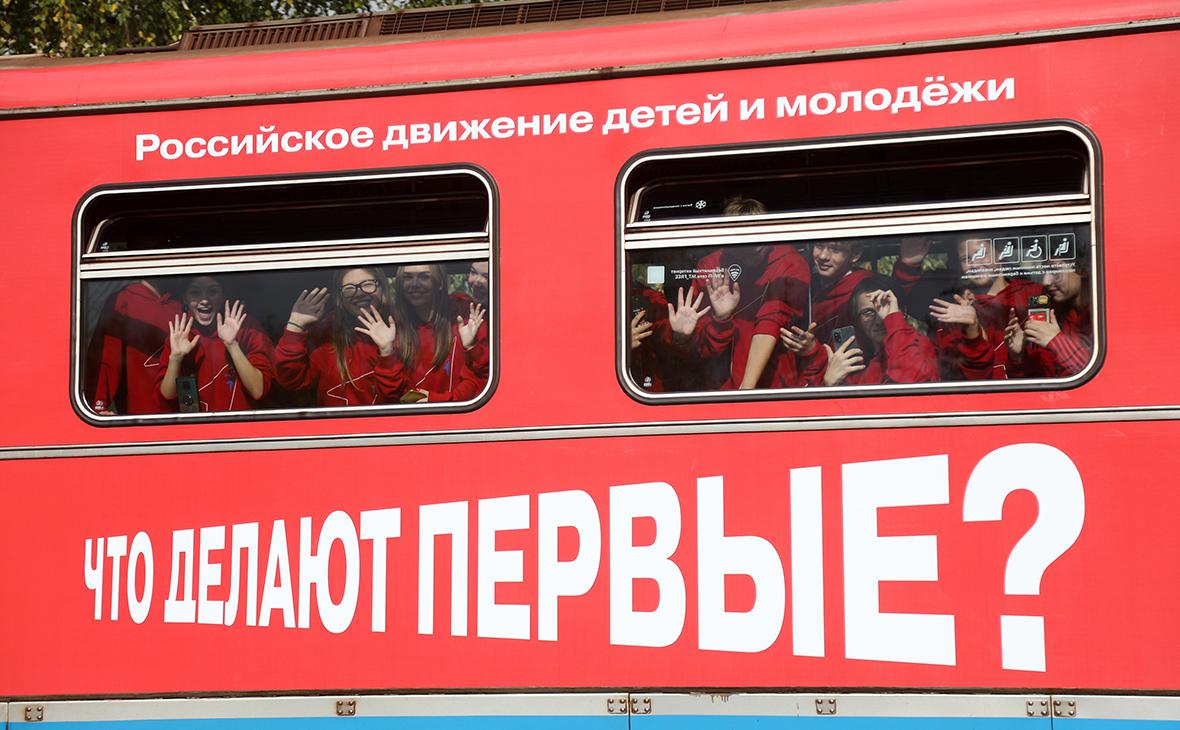
Ukrainian Reverberations of the Wagner Arrests in Belarus: Russian Disinformation?
Ukrainian Reverberations of the Wagner Arrests in Belarus: Russian Disinformation?
A scandal surrounding the alleged “betrayal” by a high-ranking official of the presidential administration is rapidly gaining momentum in Ukraine. The situation curiously concerns the detention of 33 mercenaries from the Russian private military company (PMC) Wagner Group, in Belarus, on July 29. According to Belarusian security officials, Minsk had received information about the arrival of “more than 200 militants who intended to destabilize the situation during the election campaign” (Kommersant, July 29).
On August 6, Russian media claimed that the Ukrainian Security Service (SSU) had lured the Wagner fighters to Belarus under the pretext of a contract for the protection of Rosneft facilities in Venezuela (Komsomolskaya Pravda, August 6). Apparently, the special operation would have involved forcing an emergency landing of the plane from Minsk with the mercenaries onboard as it flew through Ukrainian airspace. Once grounded, the Wagner personnel would have been arrested. Weeks later, Russian President Vladimir Putin endorsed a version of this narrative, stating that the detention of the 33 PMC fighters in Minsk was the result of a joint operation of the Ukrainian and United States intelligence services (Deutsche Welle—Russian service, August 27).
The most unusual element of this story was that several well-known Ukrainian journalists, members of parliament, and politicians unexpectedly confirmed the Russian allegations. In mid-August, reporter Yury Butusov and army veteran Yevgeny Shevchenko made public information supposedly showing that the above-described SSU special operation had been planned for a whole year. According to their version, the Ukrainian side was able to identify militants in Russia who fought in Donbas and were involved in the July 2014 downing of Malaysian Airlines Flight 17 and other crimes. The SSU “recruited” them under a false pretext, lured them to Belarus, after which they were to be immediately put on a Minsk–Istanbul flight. Then the plane was to make an emergency landing in Kyiv under false pretenses, and the militants detained.
According to Butusov and Shevchenko, the operation fell through after it was postponed at the initiative of the Office of the President of Ukraine, which was allegedly informed about the operation only in its final stage. Yuri Butusov explicitly termed the reason for the failure “betrayal,” that is, the deliberate release of information to the Russian side, for which he personally accused the head of the Ukrainian presidential office, Andriy Yermak (Facebook.com/butusov.yuriy, August 18). In turn, Yermak described the accusations as “a well-planned disinformation campaign” and “an operation of the Russian intelligence services” (Lb.ua, August 18). President Volodymyr Zelenskyy called the allegations about the deliberate failure of the operation “nonsense” (Radio Svoboda, August 20).
In September, the scandal unexpectedly erupted with renewed vigor. On September 4, a member of former president Petro Poroshenko’s European Solidarity faction, Volodymyr Aryev, released evidence of the presidential office’s involvement in disrupting the special operation to detain the Wagnerites. Another member of the same party, Oleksiy Goncharenko, said that President Zelenskyy and his entourage were providing cover for those who “leaked” the information to the Kremlin (Dsnews.ua, September 4).
Three days later, a petition was registered on the Verkhovna Rada (Ukrainian parliament) website demanding the creation of a temporary commission of inquiry to investigate possible high treason (Rada.gov.ua, September 7). Finally, the former head of the Office of the President of Ukraine, Andriy Bogdan, in an interview with Dmitry Gordon, confirmed the existence of the special operation and said it was disrupted after a call from someone within President Zelenskyy’s inner circle (Gordonua, September 10).
Nevertheless, many Ukrainian politicians and public activists continue to doubt the existence of the operation. The leader of the civil society movement Spilna Sprava and a former advisor to the minister of defense of Ukraine, Oleksandr Danilyuk, believes that the theory proposed by Zelenskyy’s opponents does not stand up to criticism. “Operations at such a level are authorized by the first person in the country [i.e., the head of state]. If it existed, the president would have approved the plan from the very beginning, rather than being informed about it at the last moment. The use of Belarus for transit a week before the presidential elections also seems illogical. At that time, [President Alyaksandr] Lukashenka quite clearly defined Russia as an adversary, and the [Belarusian] KGB’s reaction to the detention of the mercenaries in this context was quite predictable. In addition, the Wagner Group is a cover for the Russian special services, and it never acts without coordination with them, even when fulfilling a ‘private’ order. It would be quite impossible to lure out of the country people who participated in war crimes,” he commented. According to Danyliuk, the reporting on the operation and its failure was Russian disinformation, “intended to win the support of Ukrainian political groups” (Author’s interview, September 10).
Danilyuk’s arguments are indirectly supported by an official statement of the Russian Ministry of Foreign Affairs, made on July 30. According to it, the detained group was in transit via Minsk to Istanbul (on the way to a final third-country destination), and all the logistics, including the purchase of tickets, were provided by a Belarusian company (Mid.ru, July 30). This contradicts the version of a “Ukrainian special operation,” according to which the logistics were handled from Kyiv. If the premature arrest of the Wagner mercenaries in Minsk was truly the result of a betrayal, Moscow presumably should have known about the operation at the time the militants were detained. In this case, it is rather strange that the foreign ministry did not initially voice this version of events, especially since it would clearly be beneficial to the Russian authorities. Logically then, the story about an “SSU special operation” was almost certainly invented by Russia a few days after the arrest, as a result of negotiations with Minsk.
And yet, Ukrainian deputy Goncharenko told this author, on September 10, that he had no doubt the operation existed. According to him, he received confirmation from his own reliable sources, which, however, he did not name. Journalist Yanina Sokolova also continues to publish alleged audio recordings of the recruitment of Russian mercenaries by the SSU (Nv.ua, September 10).
It is difficult to predict the further development of the scandal, but how it is materializing clearly indicates a serious political crisis within the Ukrainian elite. Regardless of whether there truly was a deliberate betrayal of a real operation or if the scandal represents disinformation about an imaginary one, both eventualities show that Russia still retains the ability to manipulate Ukrainian domestic politics for its own interests—a dangerous vulnerability Kyiv has yet to resolve.


